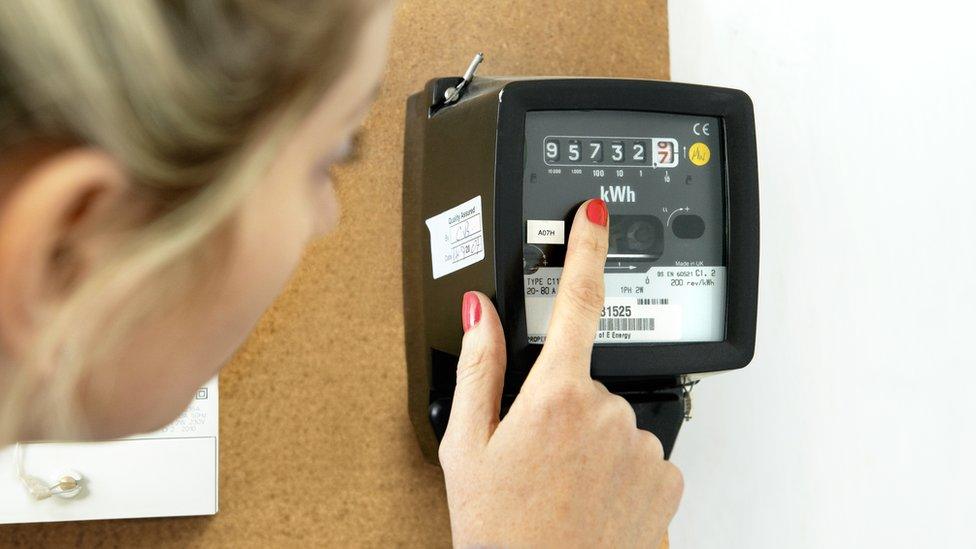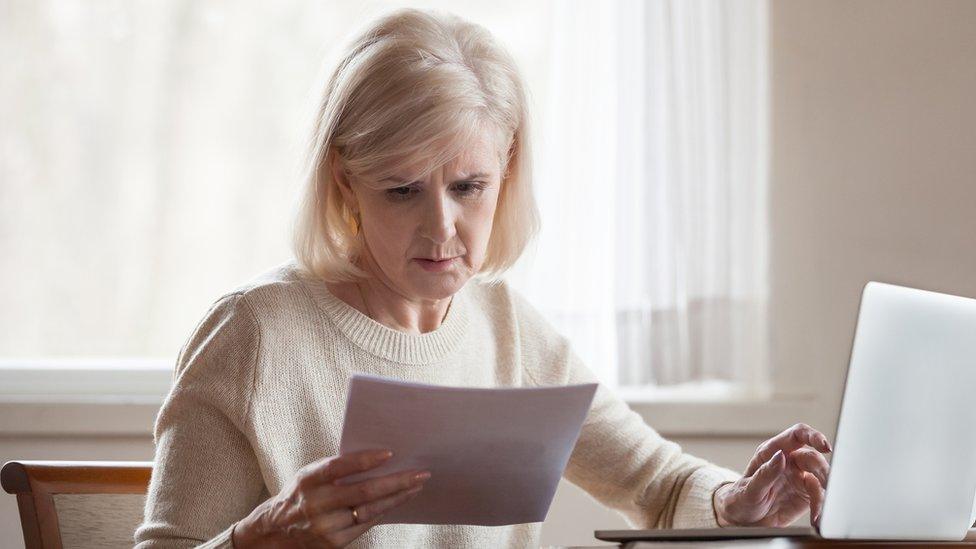NI families 'desperate but cannot access £2m fuel scheme'
- Published
Mr Durkan, of the SDLP, told the committee that there had been "clear failings in communication".
A £2m emergency winter fuel scheme has been capped at 330 payments daily to prevent it from becoming overwhelmed, a Stormont committee has been told.
The scheme was launched last week but people have been struggling to apply because within as little as 15 minutes after it opens, it shuts again.
MLAs Andy Allen and Mark Durkan said they had been "inundated" with calls from people blocked from applying.
Mr Allen, from the UUP, said he felt the scheme was not "fit for purpose".
However David Polley, from the Department for Communities, told the Stormont committee on Tuesday that this was "an immediate crisis fund for those facing disconnection in the next few days".
He said there are about 200,000 to 300,000 households living in fuel poverty in Northern Ireland.
"It is not our expectation that this scheme will be able to cater for all those households," he stressed.

Andrea Maxwell has been trying to register every day since the scheme opened.
On Monday, she got as far as filling out the form before she was told applications had been disabled - within five minutes of the portal opening.
The Newtownards mother-of-three is a full-time carer for her son.
Her electricity bill for the past six days has already topped £90 - just £5 less than her weekly income support.
That is double what it cost before Christmas.
"When the kids aren't here and they're at school, I sit with no heating on so I have enough oil for when they come home," she told BBC News NI.
"My son is disabled and trying to explain to him you can't play your game because we have no electric, or trying to explain to the wee ones you can't have a bath because we haven't had the heat on all day, [because] you're sitting here thinking you've put £91 into the electric.
"The kids are well fed this week and I'll have beans on toast."
She said the process was needlessly complicated.
"The government know exactly who is on benefits and what benefits they're on, so all they need to do is go into their database.
"They ask you your gross income on benefits - I don't know what it is so I have to get onto the benefits office, they won't tell you over the phone, they have to mail it out."
She added: "What annoys me the most is if I was in England, Scotland or Wales you get help by the companies that you're with so if you're on benefits they have a scheme and you can apply for it every year.
"I know friends of mine who've been trying since the scheme opened and now said it's not worth the hassle or the stress of it."

Mr Polley told the communities committee that a similar scheme launched last year had a weekly cap but was overwhelmed within the first hour of its opening on a Monday.

People are struggling to access an emergency fund to tackle fuel costs
The daily cap means it should be available every day for someone who is at risk of disconnection, he said.
"In order for payments to be available until the end of March, there is a maximum number of applicants who can apply," he said.
"The cap was quickly reached on the first few days but half of the applications weren't eligible."
The scheme has already helped hundreds of people, he said, but added that this was "a relatively small part of the support available from the Department for Communities".

There have been calls for Communities Minister Deirdre Hargey to make more money available
Mr Polley said that following technical issues on their website, the Bryson Charitable Group, which is managing the fund, had increased its capacity.
The scheme was launched on 6 January and is due to run until 31 March. It offers £100 towards energy costs for anyone who is eligible.
The DfC has bid for a further £55m to help those struggling with fuel poverty and a final decision is expected in the January monitoring round.
Mr Durkan, of the SDLP, told the committee that there had been "clear failings in communication".
"The scheme was announced on 29 December with no eligibility criteria. Anyone could see the flaws with delivery," he said.
He said his office had been "inundated with people in desperate need".
"It's shocking that we haven't learnt lessons on how to support the most vulnerable in society," he said.
Related topics
- Published10 January 2022

- Published6 January 2022

- Published14 June 2022
